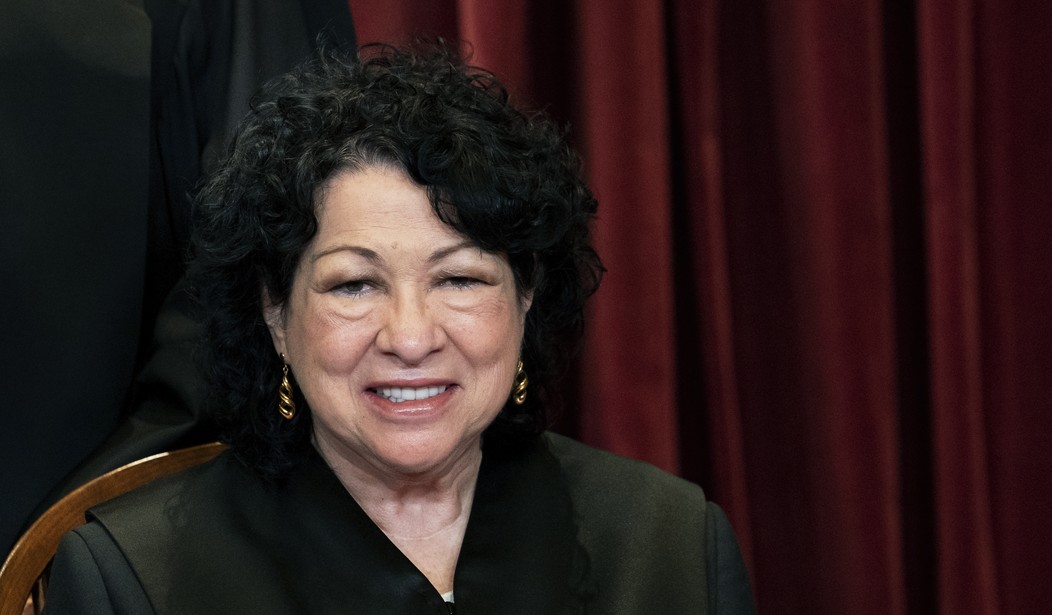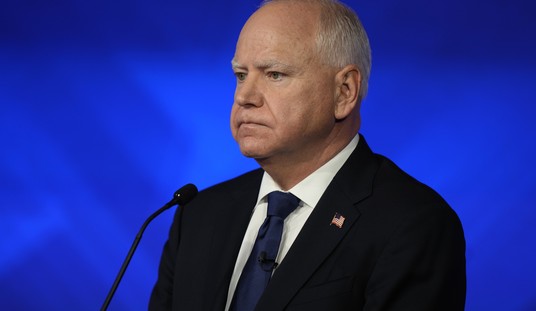On Monday morning, the U.S. Supreme Court ruled in a 6-3 decision of Trump v. United States that the office of the United States presidency has immunity from criminal prosecution. Justice Sonia Sotomayor wrote the dissent, which Justices Elena Kagan and Ketanji Brown Jackson also signed onto. It's a dissent that has plenty of people talking over social media, with a common theme of the reaction being "bats**t" to describe her ranting and raving.
"With fear for our democracy, I dissent," she wrote in what sounds like a line the Biden reelection will almost certainly take advantage of. She also began her dissent in part by writing that "the Court gives former President Trump all the immunity he asked for and more. Because our Constitution does not shield a former President from answering for criminal and treasonous acts, I dissent." There's more to highlight in between those points, however.
Someone get Sonia Sotomayor a MSNBC contributor contract. pic.twitter.com/KXqxjfCqxR
— Josh Hammer (@josh_hammer) July 1, 2024
There's also been chatter over social media about a president being able to use Seal Team 6 to order the assassination of his political opponent. That, it turns out, is because a Supreme Court justice herself brought it up.
As she writes towards the end:
Looking beyond the fate of this particular prosecution, the long-term consequences of today’s decision are stark. The Court effectively creates a law-free zone around the President, upsetting the status quo that has existed since the Founding. This new official-acts immunity now “lies about like a loaded weapon” for any President that wishes to place his own interests, his own political survival, or his own financial gain, above the interests of the Nation. Korematsu v. United States, 323 U. S. 214, 246 (1944) (Jackson,J., dissenting). The President of the United States is the most powerful person in the country, and possibly the world. When he uses his official powers in any way, under the majority’s reasoning, he now will be insulated from criminal prosecution. Orders the Navy’s Seal Team 6 to assassinate a political rival? Immune. Organizes a military coup to hold onto power? Immune. Takes a bribe in exchange for a pardon? Immune. Immune, immune, immune.
Recommended
Both the left and the right have been highlighting such an excerpt either to join in on the pearl-clutching or to point out why this isn't quite the case. This is also why many have not been holding back when it comes to their true feelings on this particular justice.
The majority actually makes it pretty clear that a President assassinating his political rivals is not an act that would be covered by immunity, but Sotomayor is not exactly bright. https://t.co/lmgs8ktt87
— Erick Erickson (@EWErickson) July 1, 2024
No, the Court just ruled 6-3 you can’t read English.
— Amy Curtis 🇮🇱 (@RantyAmyCurtis) July 1, 2024
Assassinating an opponent is not an official act. https://t.co/joW9xi9eRP
Genuinely shocking that you take Sotomayor’s word for it. Well, not shocking, it’s you. https://t.co/z1k02WYhB7
— Joe Gabriel Simonson (@SaysSimonson) July 1, 2024
Army veteran Sam Rogers had a particularly strong reaction, even arguing that Sotomayor should be impeached for such claims, and do so once Trump wins so that he could nominate her replacement.
Justice Sotomayor's reckless and false assertion that POTUS can utilize Seal Team 6 to murder opponents has led to calls for violence and demonstrates that she doesn't belong on the court. Senate Republicans should impeach in Nov and Donald Trump should nominate her replacement.
— Sam Rogers (@RealSamRogers) July 1, 2024
The person with the most memorable reactions would likely have to be Ben Shapiro, though he highlighted a point about "every" one of her dissents coming off in such a particular way.
Every Sotomayor dissent is written like a Teen Vogue columnist somehow obtained a slot on the Supreme Court.
— Ben Shapiro (@benshapiro) July 1, 2024
If you are dumb enough to take Sonia Sotomayor's idiotically anti-factual dissents seriously, then you may deserve to be droned by a non-existent Constitutionally immune president.
— Ben Shapiro (@benshapiro) July 1, 2024
Following that particularly talked about excerpt, Sotomayor herself acknowledges that such scenarios might never happen, though she still goes on to engage in hysterics:
Let the President violate the law, let him exploit the trappings of his office for personal gain, let him use his official power for evil ends. Because if he knew that he may one day face liability for breaking the law, he might not be as bold and fearless as we would like him to be. That is the majority’s message today.
Even if these nightmare scenarios never play out, and I pray they never do, the damage has been done. The relationship between the President and the people he serves has shifted irrevocably. In every use of official power, the President is now a king above the law.
Is that what the Court is saying? The win is a partial one for former and potentially future President Donald Trump, especially since he is only immune when it comes to acting in his official capacity, though one wouldn't know it from such excerpts of Sotomayor's dissent. "There is no immunity for unofficial acts," the syllabus explicitly points out.
In writing the opinion for the Court, Chief Justice John Roberts also makes reference to Sotomayor's dissent to address her points, with citations pointing out exactly where he's doing so.
"The principal dissent’s starting premise—that unlike Speech and Debate Clause immunity, no constitutional text supports Presidential immunity, see post, at 4–6 (opinion of SOTOMAYOR, J.)—is one that the Court rejected decades ago as 'unpersuasive,'" Roberts writes at one point of his opinion.
Roberts also refers to one of the points Sotomayor made above, claiming "the President is a king above the law." She actually does so quite a few times, despite how Roberts explicitly writes "the President is not above the law," including in part of his opinion which mentions, "The President enjoys no immunity for his unofficial acts, and not everything the President does is official. The President is not above the law."
In specifically addressing Sotomayor's claims on that point, Roberts issues these key reminders in a way that causes Sotomayor's dissent to fall apart further:
Coming up short on reasoning, the dissents repeatedly level variations of the accusation that the Court has rendered the President “above the law.” See, e.g., post, at 1, 3,11, 12, 21, 30 (opinion of SOTOMAYOR, J.); post, at 9, 10, 11,12, 13, 19 (opinion of JACKSON, J.). As before, that “rhetorically chilling” contention is “wholly unjustified.” [Nixon v.] Fitzgerald, 457 U. S., at 758, n. 41. Like everyone else, the President is subject to prosecution in his unofficial capacity. But unlike anyone else, the President is a branch of government, and the Constitution vests in him sweeping powers and duties. Accounting for that reality—and ensuring that the President may exercise those powers forcefully, as theFramers anticipated he would—does not place him above the law; it preserves the basic structure of the Constitution from which that law derives.
The dissents’ positions in the end boil down to ignoring the Constitution’s separation of powers and the Court’s precedent and instead fear mongering on the basis of extreme hypotheticals about a future where the President “feels empowered to violate federal criminal law.” Post, at 18 (opinion of SOTOMAYOR, J.); see post, at 26, 29–30; post, at 8–9, 10, 12, 16, 20–21 (opinion of JACKSON, J.). The dissents overlook the more likely prospect of an ExecutiveBranch that cannibalizes itself, with each successive President free to prosecute his predecessors, yet unable to boldly and fearlessly carry out his duties for fear that he may be next...
Constitutional studies expert Ilya Shapiro also highlighted such a point in highlighting his takeaways from Trump v. United States.
Lots of people boosting Sotomayor’s florid dissent lines, not enough people doing the same for how Roberts - as the kids say - “claps back” in the majority opinion: pic.twitter.com/a3GLpqbUd5
— jeremysenderowicz (@senderowiczj) July 1, 2024
1. On presidential-immunity ruling: Although Trump supporters will crow and antagonists will wail, the Court’s presidential-immunity decision doesn’t absolve the former president or put anyone above the law.
— Ilya Shapiro (@ishapiro) July 1, 2024

























Join the conversation as a VIP Member